|
I was honored to speak at the Mental Health Association of San Francisco's Hoarding and Cluttering Convention. My talk on "How To Organize Your Space with a Feng Shui Template" was welcomed by the audience. They seemed to enjoy it, as much as I did, since it focused off the clutter, and more on fun and easy solutions to clearing the path.
Most educators at the convention concurred that many people with clutter and hoarding challenges do not go to therapy. Most likely because they don't see their clutter as a problem. Also, something to do with attachment issues, which means the stuff they collect is friendly and fuzzier then most people, and they have no intention of getting rid of a thing. The stuff issue is just to personal and painful.There were Professional organizers and consumers at this convention working on all kinds of solutions for over-collecting and accumulating. The researchers attending indicate it is bio/psycho/social challenge, which means genetic, psychological and societal. Hoarding disorder and Obsessive Compulsive Disorder may factor in to the more serious cases. Once the objects, stuff and items build up into a barricade, and the people living in the space can barely move, creating psychosis, depression, anxiety, fire hazards, and possibly even death it becomes dangerous. You can read more about these challenges in a previous article at http://www.i-deal-lifestyle.com/1/post/2011/09/do-i-have-ocd.html Social workers, marriage and family therapists, psychologists, psychiatrists and educators help with hoarding and mental health challenges, but the kindness and compassion, and physical aspect of going into someone's home to transform it is usually done by professional organizers. The boundary issues prohibit so much of what mental health practitioners provide and offer. Anyone who wants to help with a hoarding situation will want to roll up their sleeves and pitch in. When that is not comfortable for a practitioner / family member / or friend then the helping is better left to a professional organizer with a mental health background. You either have the knack to help others get organized and to have resolve in their lives, or you don't. There is no in-between in being a professional organizer. Getting organized is hard work, and takes tenacity, thoughtfulness and a planned strategy for both the organizer, and the person with hoarding and cluttering challenges. For people with clutter and hoarding challenges other people, who get close to them, may pose unsafe possibilities (people wanting to get rid of their charged items, judgment, abuse, removal from their home). The objects start to take life, meaning and then a relationship is formed. Also things that are collected may hold memories, ideas, thoughts and images of a time, person, place. The mind has now made a simple ice cream wrapper a time spent on the beach with a person's absent son, brother, husband or friend. It is a seriously isolating. It is seriously challenging. It is seriously difficult to stop. I have four very close friends and family members who suffer with their barricades and the one common link I found is a broken and damaged relationship with their fathers. I started to talk to clients I work with and it may be a greater possibility that the paternal modeling is essential in future organizing skills. Marla Stone, Author, Professional Organizer, Decor and Feng Shui Idealist, Lifestyle Changer www.i-deal-lifestyle.com 949-709-7000
0 Comments
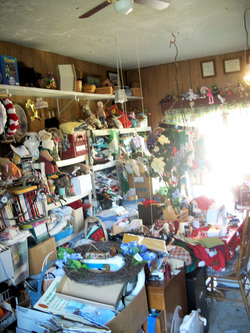 Hoarding, collecting, getting organized and staying organized seem to be very popular subjects these days. I subscribe to several magazines and each and every month there is at least one article about being or getting organized. Most magazines are focused heavily on organizing one’s self, home or office. The television shows, on collecting and hoarding, portray extreme cases, actually making you feel ill watching them. Hoarding seems to be happening in epidemic proportions. So are you a collector or a hoarder and what is the difference? The answer is you cannot be hoarding if you have not collected, but you can collect and not hoard, so they are separate terms. Hoarding is a negative behavior if the hoarding is creating an impoverished way of life. Collecting seems to be a much kinder way to look at the situation, yet it is the necessary key element and beginning act to hoarding. When someone has boxes, papers, collectibles, food products, gifts, animals and so much stuff it takes up their precious living space, until the point that they cannot even enjoy or use the stuff, it called Impoverished Wealth. You have so much stuff, stuffed in your home, you cannot even use or enjoy it. The money or time you spent collecting items, has now taken up your space for living, moving about and enjoying a fulfilled lifestyle. Collecting, on the other hand, if done as a hobby or for a purpose and does not turn into cluttered mess, can be quite enjoyable. I enjoy collecting art, artistic objects, books on decorating, Feng Shui, alternative health and herbal medicine. I have a place for everything. When I buy more then I have space for, I eliminate something and replace it with something I like better. The minute your stuff starts to fill entire rooms, garages and walk-ways you are probably collecting and hoarding too much stuff. Whatever is eliminated may go to family, friends or sold on Ebay.com or esty.com. Anything left from your purging can go to charity. Your taste in fashion and design changes about every 7-8 years, and so go to Town and get some new stuff, go ahead and collect and keep it around until it doesn’t please you aesthetically any longer. People who have a very difficult time letting go of “things”, even when the “things” are making their life impossible to enjoy, and who cannot stop bringing home “things”, that serve no purpose for them, are considered to be hoarding. I don’t like to call people “hoarders”, because they are not “hoarders”, they are PEOPLE who have a hole inside of them and they think they can fill up that hole with stuff. Generally I have found that people with collecting and hoarding behaviors have lost something, and they have not processed loss, therefore they have found some “things”, “items” and food or pets, which give them pleasure and fulfillment for that very moment. People with collecting and hoarding behaviors are generally the kindest, most loving and considerate people that live in our world. They have been wounded and they are licking their wounds with things that make them feel warm and fuzzy inside. I see people barricade themselves into their homes, and that is exactly what all the boxes, books, papers and stuff is, a barricade. People that create a barricade are people who have been wounded and hurt. The barricade is a sign that they have been violated, and had their boundaries crossed by intrusive, often times violent, and disrespectful people. Some people who hoard and barricade learned it from their childhoods, and many, at first, spent years working on being clean and orderly, yet ultimately fell into the same mire as their parents. When someone, with no background in helping people with collecting and hoarding behaviors, gets involved and starts to clean up or take power and control of the “things”, most people, that suffer from their collecting and hoarding, become VERY upset. I have seen people become very hypervigilant, depressed, angry, violent and sometimes psychotic if their property is even slightly disrupted. But what you have to remember is those “objects” that they have collected, and piled up, have been the replacement for what they already lost. The mind of a person who collects and hoards is very sharp, and calculative. They had to form that mind in order to function despite being hurt and wounded. Helping people who hoard, purge their obsolete and purposeless stuff, can be like playing chess, where if you cannot keep up with their diversions and desire to keep all of their” kings and queens”, both of you will lose and end up in a vicious cycle of hamster in the wheel. When you move highly charged stuff, the person has a relationship with, it is as if you are taking their mother, father, child, pet, husband, and wife or loved one that they lost all over again. A person will start to feel as if they are unraveling and will often start to, finally, process their loss. When this occurs you must, as the helper, be prepared to be supportive, loving and kind. Take a break and have the person fully realize their catharsis. You must tread lightly but firmly with someone who has strong relationships with their stuff! The first step is that the organizer and the client develop a relationship. Both people must agree that the time is correct, and that the person with collecting and hoarding behaviors stop collecting and hoarding. A verbal contract is a good idea. Second the person with collecting and hoarding behaviors must acknowledge that they are emotionally ready for the feat of sorting and clearing. And third a plan of how they will sort, clear and fill the space with beauty and harmony must be made. It is a very difficult and strenuous prospect, when homes are filled to the gills, but it can be done and completed within a short period of time. So get prepared to Get Organized Now! Call 949-709-7000 for a free 30 minute consultation if you are ready for some help. Also look on www.i-deal-lifestyle.com and read the blog and all about the staff who will help you get and stay organized. 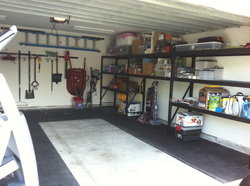 Steps for decluttering Space Analysis-Analyze your space and figure out what you want to use it for. If it is your garage for instance, do you want to park your cars or will it be a workshop or a kid's play room? Understand that if you want to use the space for more then one activity, realize the potential of the space and all that it can be. Make drawings, even if you don't draw well, of what you think it would look like. Cut out pictures from magazines of ideas you have for the space. Visualize the space in your mind's eye. Discuss the space with family and friends and generate ideas. Call a professional organizer and get a free consultation about your space. Next take everything out of your space. Take everything out of the space. Starting with an empty space will help you determine a home for everything you are keeping and give you a blank canvas to design the space from scratch. Find an area to sort through the things you will keep and the items you will eliminate. Eliminate. Of course the most difficult part is getting rid of stuff that you have held onto for some reason or another...and guess what, even if you haven't used it for years and aren't sure when you will, it is still difficult to get rid of stuff. Have four piles. One for Keep, one for Give, one for Trash, and one for Miscellaneous or just can't decide. This makes the task go quicker. Once you get everything sorted you will be ready for putting everything in its place. Putting Everything in its place. I always say there is a home for everything and it's true. You will find a home for every item you want in your space. The reason it is a good idea to have a home for everything is simple...stuff will end up back where it belongs, and it will be easy to find when you want it. Since you designed the space ahead of time it will be pretty easy to move everything into place. If there are heavy items there are great tools at the hardware store for moving and sliding heavy peices. This is also a time to hire a handyman, or get some handy friends over, if you want things hung, pictures, racks, wall units put together etc... Once your finished sit and relax and take it all in. Sit and Relax and take it all in. Finally your space is complete. This is a time to use the space and see if it really works for you. You may want to make adjustments and move things around and even eliminate more stuff you realize you're not going to use in the space. You may also want to purchase some new items for your space. Reflect on the space and make sure it is how you really imagined it. Hopefully with all the planning and carefully considered steps your space is perfect for you and voila! Marla Stone is a Professional Organizer and a Lifestyle Coach She serves Orange County, Los Angeles County and San Diego County She is also available for telephone and or skype consultations nationwide. www.i-deal-lifestyle.com Organize Your Self and Space! Downsizing and Transitioning Your Parent |
Here, you will find an array of blog articles about living an ideal lifestyle and how to improve corporate business strategies.Marla is known as the Declutter Your Strategy™ expert. Marla earned her BA in Psychology and a Master's in Social Work. Stone is the founder of |
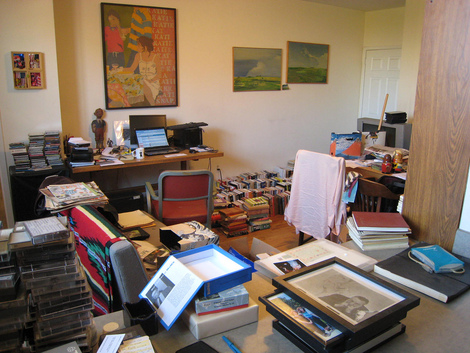
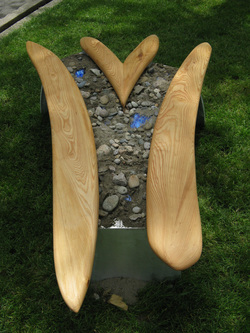
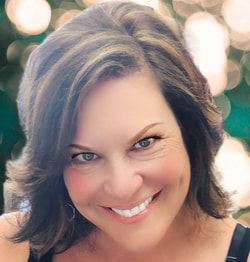
 RSS Feed
RSS Feed